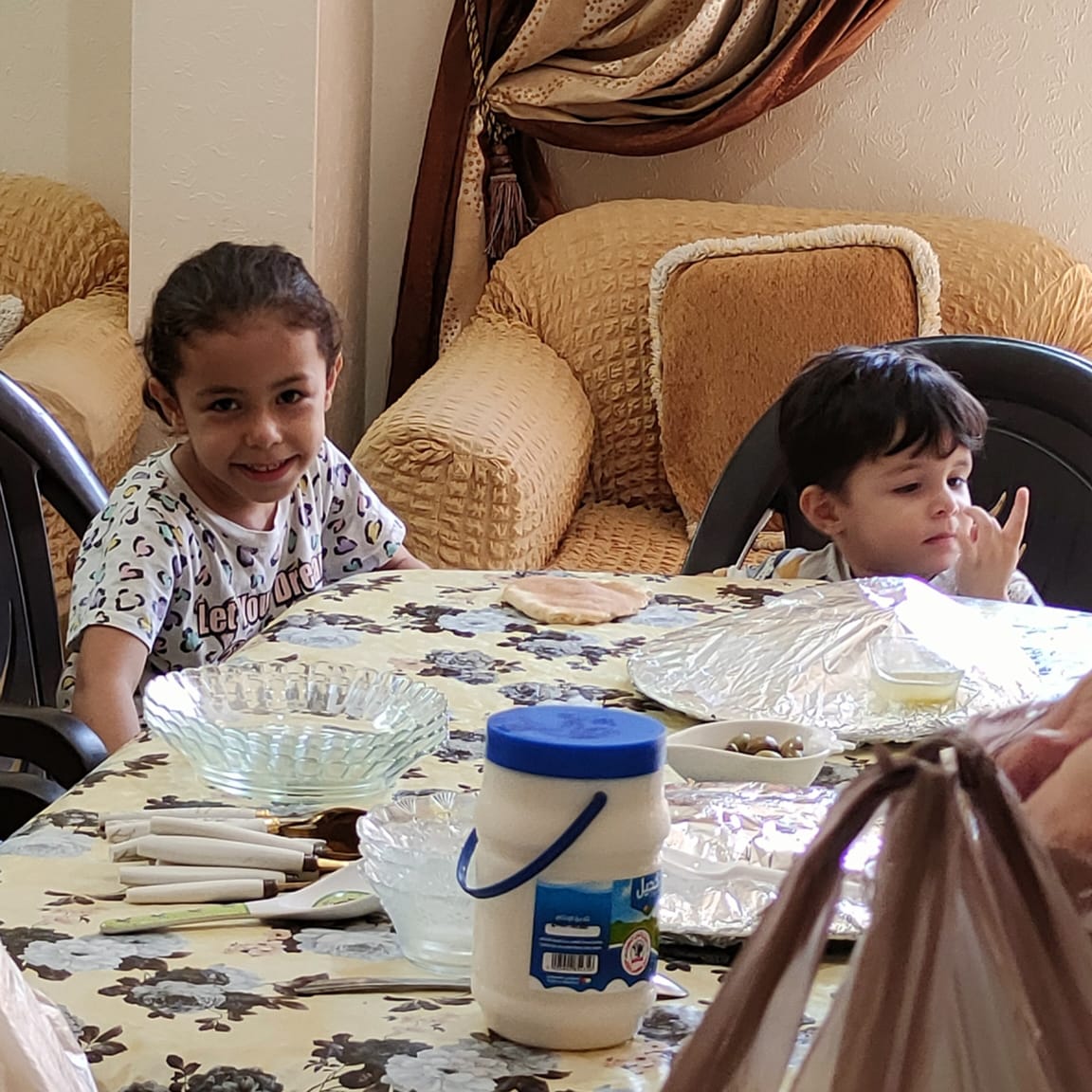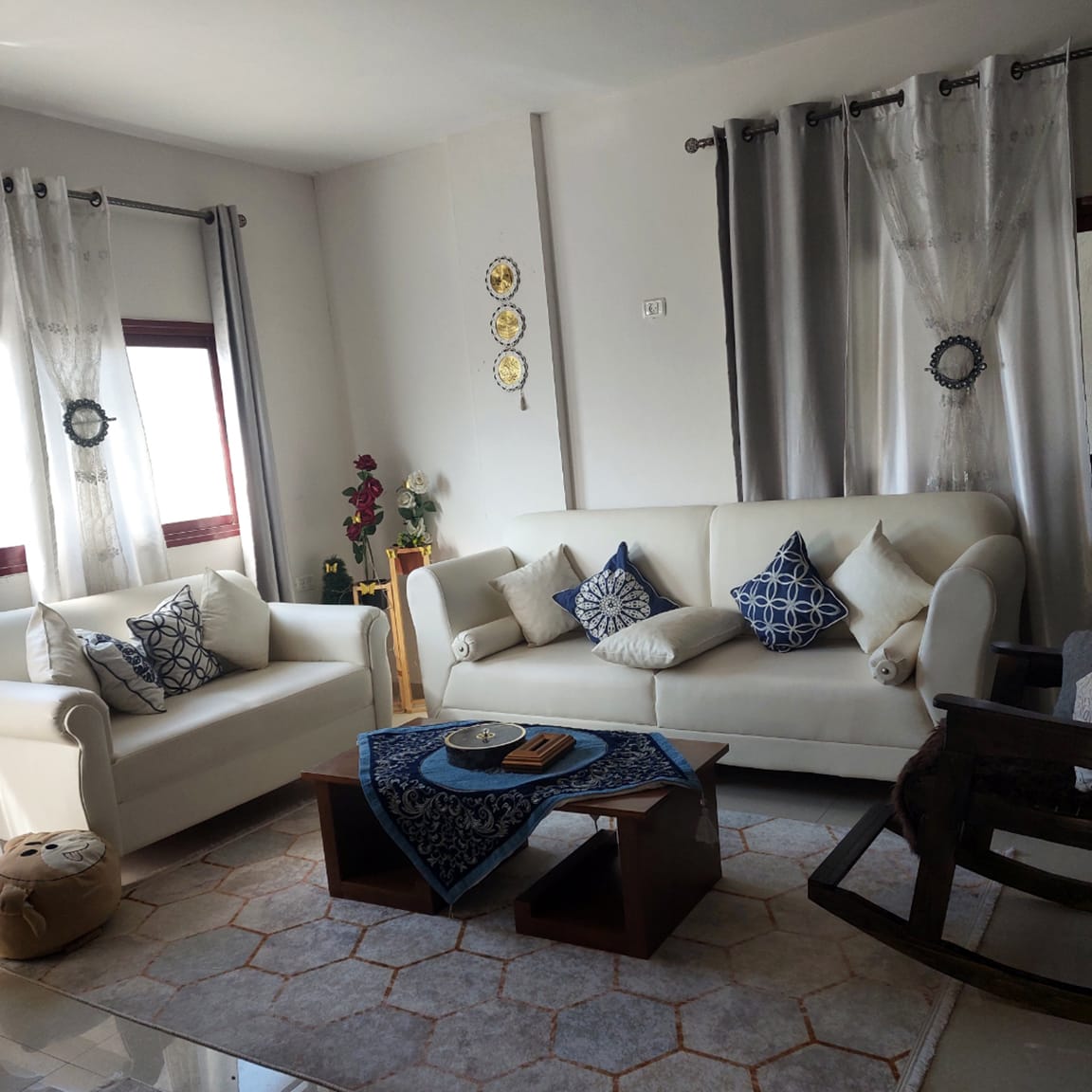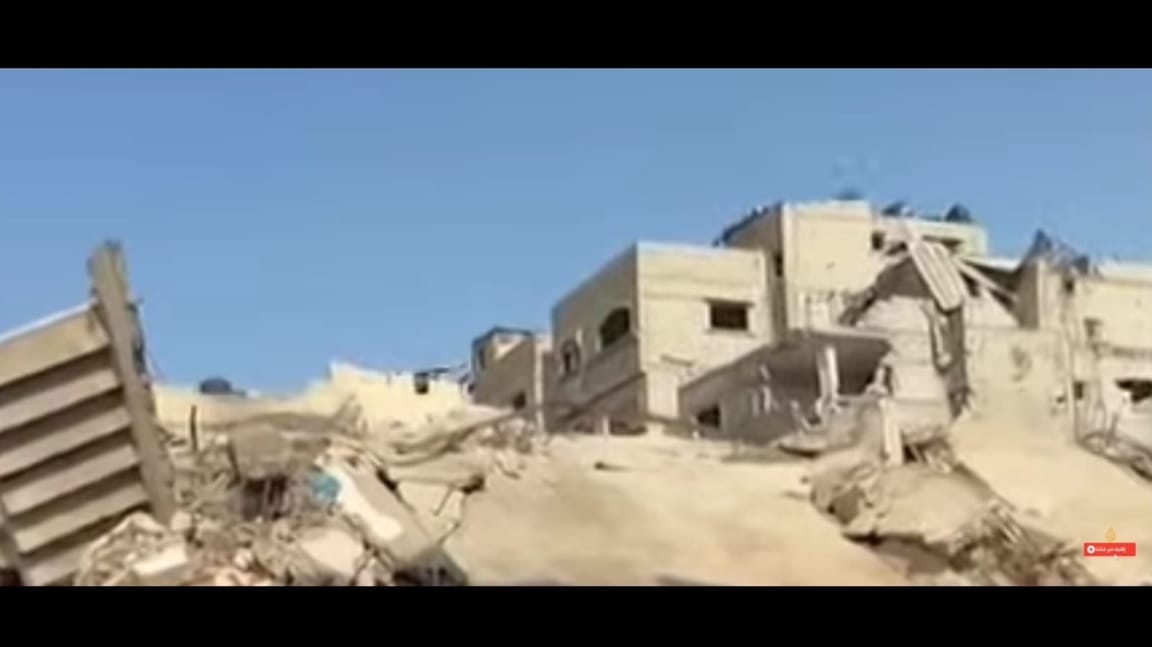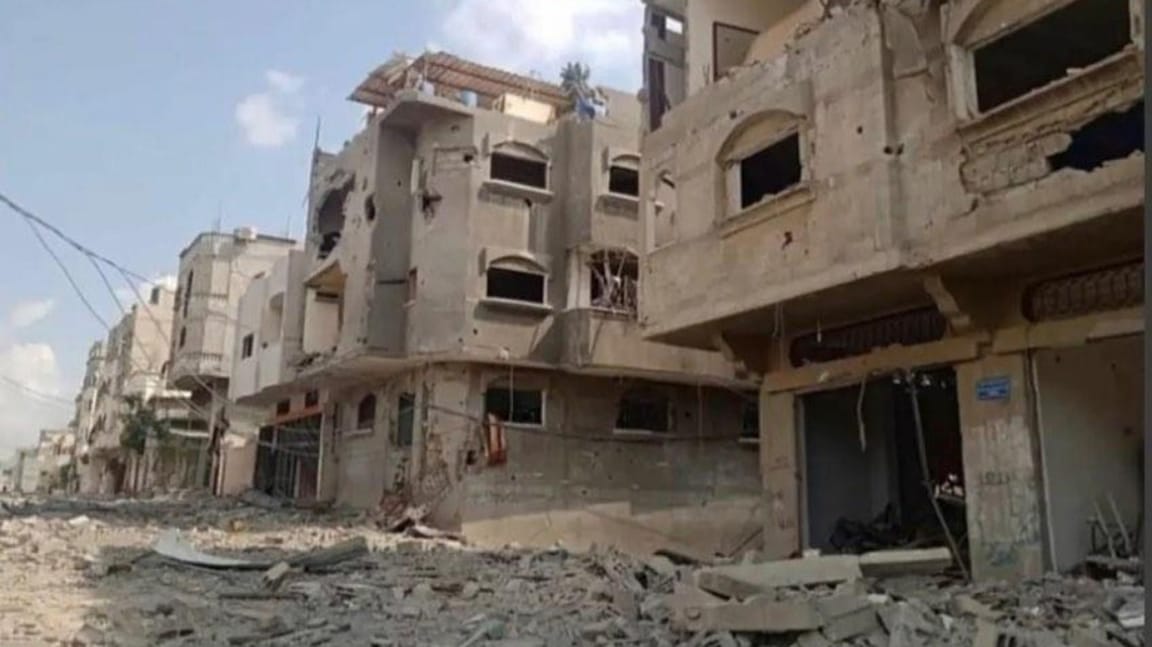Today: Moh Telbani, a writer living in Egypt; and Brian Hioe, Taipei-based editor, translator, activist, DJ, and co-founder of New Bloom.
Issue No. 241Returning to Gaza
Moh Telbani Club Lives
Brian Hioe
Returning to GazaBy Moh Telbani
 My kids at a family meal before war. My grandfather was a farmer in Askalan, once in Palestine, which is now Ashkelon, Israel. In 1948 he was forced to leave his home and farm with his wife (my grandmother) and two daughters, under the threat of fire and bombs. They left with nothing, though the family had been living in peace. My grandfather had a beautiful life, a nice farm, and a great family, when suddenly the family was forced to flee to Gaza. When he arrived there he had nowhere to stay, no money, nothing—he was homeless, depressed, with no plans and no future. In time the United Nations organization called UNRWA arrived and supplied tents, food, and needed medications for families like my grandfather’s. Eventually my grandfather found work as a teacher, and he worked hard until he had the means to educate his young family—my two aunts, and then two sons, one of whom was my father. My father studied and got his degree due to my grandfather’s work and sacrifice, and eventually he became a math teacher. My grandfather died, and then my grandmother; my father continued to work hard and eventually bought land in Gaza, where he built a small house for us. As you know, over the years there have been many wars, but never one like the one that began on October 7, 2023. Because of this war my father and the rest of our family were forced to leave our home that my father built for us, after all the years of hard work, and all the memories and emotions we left there. We lived there for more than 20 years. I was raised there. My two brothers and one sister were born there. We had nice neighbors. As kids we used to play football together after we did our homework. Never imagining the possibility that we would never return, we didn’t take much with us. We left everything behind, hoping we’d be back in a few days or something, and now it’s been 14 months.  Pics of our home in Gaza before October 7. My wife, three kids and I had the chance to leave and escape the war; we had to leave my father and the rest of my family behind, breaking our families into pieces. Every time I talk to them my heart starts to beat hard and I have trouble breathing. Even my oldest daughter Mirna, who is only 6 years old, is old enough to remember what we faced in Gaza, and to imagine what my dad and my siblings are suffering. The last time she talked to my father she started crying after three minutes’ conversation. He had to close the video call, I guess he cried also.  Pic of our home during the war shown on TV. They say our area is wiped to the ground and there is nothing left. Only destroyed houses, with perhaps bodies still buried inside. So now, my father and my family have to live in tents supplied by relief organizations, as his own father did. I don’t know, it’s such a disaster, it is so strange, on a scale nobody could have dreamed of despite the history of our land. The amount of destruction is unimaginable. It’s like a movie about the end of the world, or a horror movie. How did we deserve for this to happen to us.  Picture of the neighbourhood during war. Our story is nothing compared to too many other stories of people who lost family members or even their whole families in the war. I can’t imagine how a young wife with small kids can continue with their lives after their dad’s death, or a mum who lost a son… I once saw a man find his dad’s headless body, hugging him and crying. Who could imagine what he felt at that moment, or now. Our sorrow and anger are endless. We are waiting to find out if there is anything left of our home.
FLAMING HYDRA
Club LivesBy Brian Hioe
I’m a political reporter who writes on Taiwanese politics mostly, but my other hobby is underground electronic music. Though I have incorporated DJing into my “branding” as a journalist, I DJ only occasionally. I had a stint as the managing editor of a short-lived Hong Kong electronic music publication. I even appeared in Netflix’s rather unfortunately orientalist take on Asian nightlife, Midnight Asia. Reading Emily Witt’s memoir, Health and Safety: A Breakdown, I felt a disquieting sense of parallel to my own life. The book describes Witt’s experiences in the underground clubbing scene during the early years of Donald Trump’s rise in politics. The scene provides something like a means of escape in this narrative, even as the world seems to be coming to pieces around us. For a long time, the club scene was the world I inhabited outside of my life in politics. I viewed it in rather a utopian light, as a space on the margins, beyond capitalist consumption—a political space, but one that offered glimpses of what could be, and maybe even the prefigurative glimpse of a future society. This isn’t a new observation, obviously. Lots of people have described the club or rave as a temporary autonomous zone at a remove from society, in which people who would ordinarily never meet come together in an atmosphere of mutual unity and respect that doesn’t exist on the outside. But there’s all manner of unhealthy people and unhealthy behavior in clubs. Some go clubbing to try to lose themselves in music, dance, alcohol, and drugs—to drown out their problems in daily life. In a disintegrating world, the club looks ever more attractive as a means of idealized flight from a harsh capitalist reality. Witt’s book doesn’t try to glorify the refuge represented by the club or rave, even if, like me, she finds the experience a powerful one that is hard to describe to those who haven’t known it. I’ve read all sorts of books about raving in order to try and grasp the significance of my own experiences. I tend toward the academic theoretical takes of writers like Mark Fisher, Simon Reynolds’s Energy Flash, or José Esteban Muñoz’s Cruising Utopia. Though many recommend McKenzie Wark’s writing on clubbing, I have given it a miss because of her rather odd sympathies for left-wing Chinese ethno-nationalists who would probably put me in a prison camp. I found much to appreciate in the glimpses of utopia that Fisher and Muñoz’s found in the club, while Reynolds’s work fleshed out my understanding of how electronic music came to be. But academic anthropologists’ writing in general has ultimately seemed to me to be apologism for the club, declining to address the darker sides—for example how nightlife is a business that can be exploitative in deriving profit from people who are sometimes simply very, very sick. The writing around it is most often just a celebration of the emancipatory side of clubbing, confined to the author’s positive experiences, rather than looking closely at the industry dynamics or punishing marketing cycles for artists. The second half of Health and Safety concerns Witt’s relationship with her boyfriend Andy, who suddenly turns on her one day with a series of wild accusations. As I read I suspected more and more that Andy was bipolar. When I was finished with the book—I read it in basically a single sitting—I looked into Witt’s story and learned that Andy had indeed later been diagnosed as bipolar. It’s a very accurate depiction of that disorder. I had taken up the book after catching a mention of it and noticing that it was set in Bushwick during the early 2010s—precisely the same time I had left New York and moved to Taipei. Having discovered underground electronic music in Taipei, and being very much a creature of the Taipei scene, I saw it as a way to learn about the underground New York scene that I’d missed. I found I’d actually seen many of the artists mentioned in the book play in Taipei. It was strange to read about a world I had missed out on the chance to be part of, yet knew a lot about—not only the electronic music scene, but also what it was like to be a writer in the U.S. during the early years of the Trump era: I felt jolts of recognition as a journalist who chronicled various political moments in Taiwan at times when it seemed that society was coming apart at the seams. It was the section about Andy, though, that really struck a chord. It reminded me of my experiences with a close friend of over a decade in the club scene, who is bipolar, and who sometimes gaslit me or unpredictably tried to savage my reputation in various social circles. The pain of this part in Witt's book was all too familiar to me. At one point I contemplated cutting off this friend as she continued to make one self-destructive decision after another, abusing substances all the while. During the worst of it—badly shaken by revelations of her really questionable actions—I decided that unfortunately, some people are basically family, and you just have to live with the consequences of their terrible decisions, sometimes. And so we’re still friends today. But for Witt, Andy’s illness meant the end of their long relationship. It takes a lot of bravery to write about that so directly. Health and Safety was especially moving to me because I too wrote a book based on events in my own life; the most dramatic details and the most painful episodes, though, I kept out of my book. It seems there’s something that courage like Witt’s can accomplish, when it can resonate with someone in a faraway place. Maybe that’s the greatest power of writing. R E A L W R I T E R S F L A M I N G H Y D R A R E A L A R T I S T S Subscribe, donate, send someone a gift subscription, or buy a subscription for a student.
|